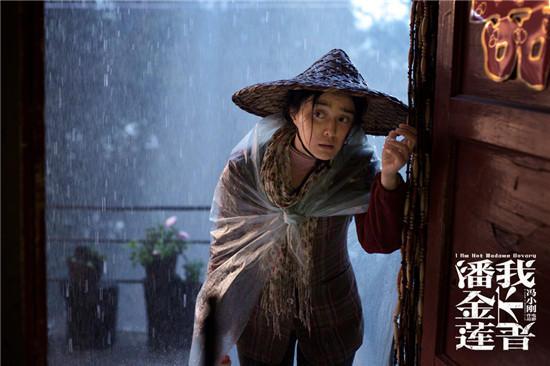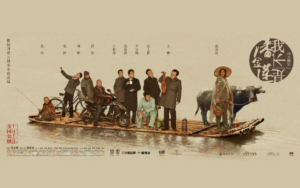Guangdong woman takes moviemakers to court over reference to licentious fictional character who shares her name.

A blockbuster that chronicled a rural Chinese woman’s fight against injustice has come up against a real-life legal challenge of its own. Citing defamation, 60-year-old Pan Jinlian from southern China’s Guangdong province is suing the director of I Am Not Madame Bovary, a film known in Chinese as “I Am Not Pan Jinlian.”
In the 2016 satirical movie directed by renowned filmmaker Feng Xiaogang and starring megastar Fan Bingbing, protagonist Li Xuelian pits herself against the country’s legal system to clear her name after she is wrongfully accused of infidelity and divorced by her husband. The film’s title is a reference to her argument that she is no “Pan Jinlian,” a character from ancient Chinese literature who has become synonymous with sexual debauchery.
With the authors of those works — Jin Ping Mei and Water Margin — long gone, Pan, the plaintiff in the recent legal case and a resident of the city of Zengcheng, has turned her attention to the people and production companies behind last year’s highly successful movie, including director Feng, producer Huayi Brothers Pictures, and Liu Zhenyun, author of the 2012 novel on which the film is based.
A statement appearing to have been issued by Pan claimed that the film had caused her significant emotional distress and that trailers and other forms of promotion had only compounded the defamation against her. “Not only did the plaintiff become severely depressed and vexed,” her statement, cited by news portal Sohu, read, “but the esteem of her relatives and other people with the Pan surname has also decreased drastically in the eyes of society.”
During her argument in the court case’s opening session, held Tuesday at the Chaoyang People’s Court in Beijing, Pan took particular exception to the film’s opening narration, the Chengdu Economic Daily reported Wednesday. The narration, spoken by director Feng, said: “Ever since the Song Dynasty, people have used the name Pan Jinlian to refer to improper women.” She also argued that the film did not stipulate that any semblance to reality was mere coincidence.
In an interview with the Chengdu Economic Daily, Pan’s younger brother said that his sister’s suffering caused by her fictional namesake has been going on for years, with her two children and husband also bearing the brunt. But with the release of I Am Not Madame Bovary, circumstances have worsened, said her brother, who was not identified by name. “She can’t sleep for much of the night, and her health is deteriorating,” he said, adding that elderly neighbors in her housing estate now openly mock her.
The case was originally scheduled for the end of December 2016, but the absence of some of the defendants’ legal representatives meant it was delayed until March 21 — the same day the film took three awards, including best film and best actress, at the 11th Asian Film Awards in Hong Kong. The defendants refused to settle, and an unnamed legal representative was quoted by the Chengdu Economic Daily as saying, “The historical figure and the person in real life share the same name, but they are two different matters entirely.”
Pan’s battle to clear her name is not the first time “I Am Not Madame Bovary” has come under fire. In November of last year, a judge called the movie an insult to her profession. Li Xiaomei, a judge in eastern China’s Jiangsu province, criticized the protagonist’s decision to petition the government and appeal to officials rather than pursue legal justice through the courts.
A verdict for the recent legal challenge is expected on April 19.
— This article originally appeared on Sixth Tone.



